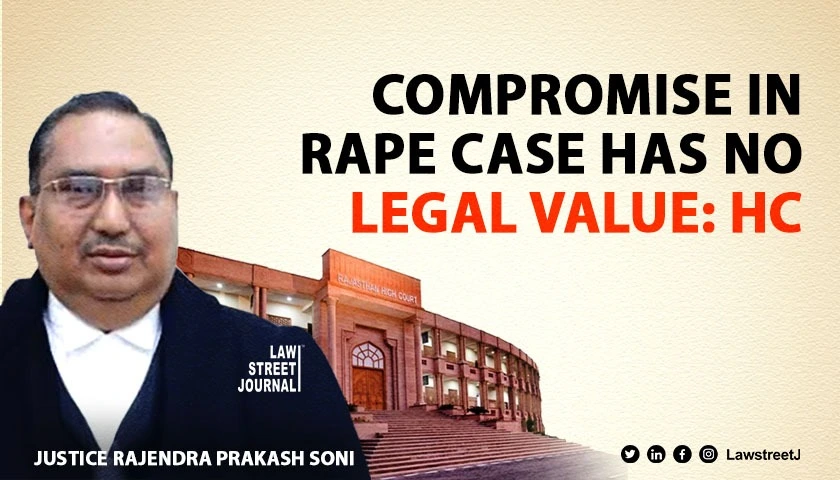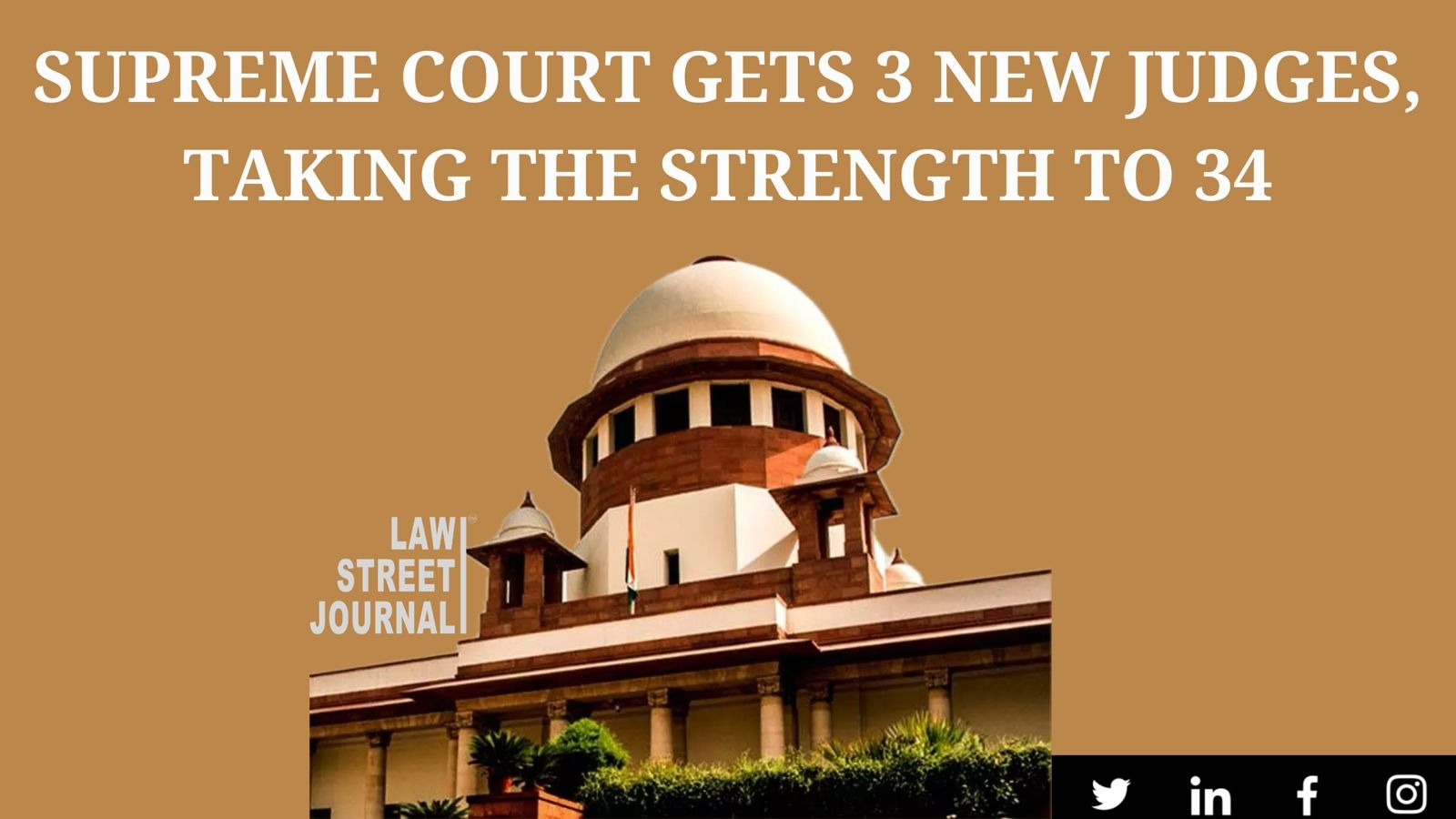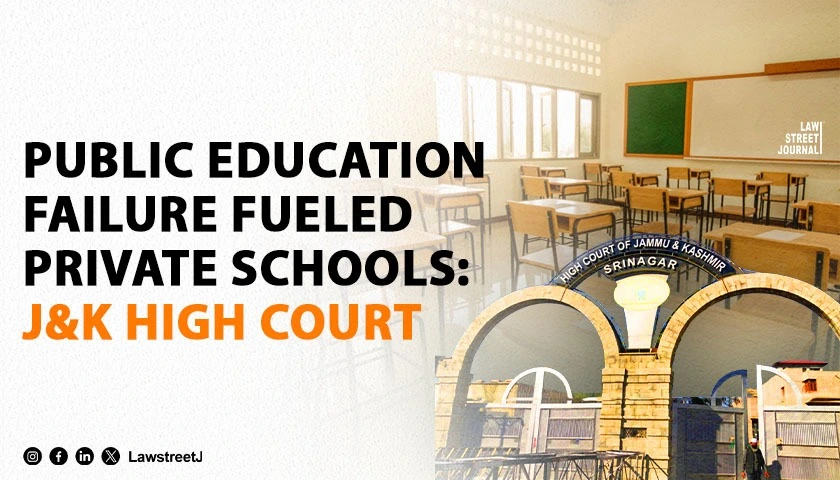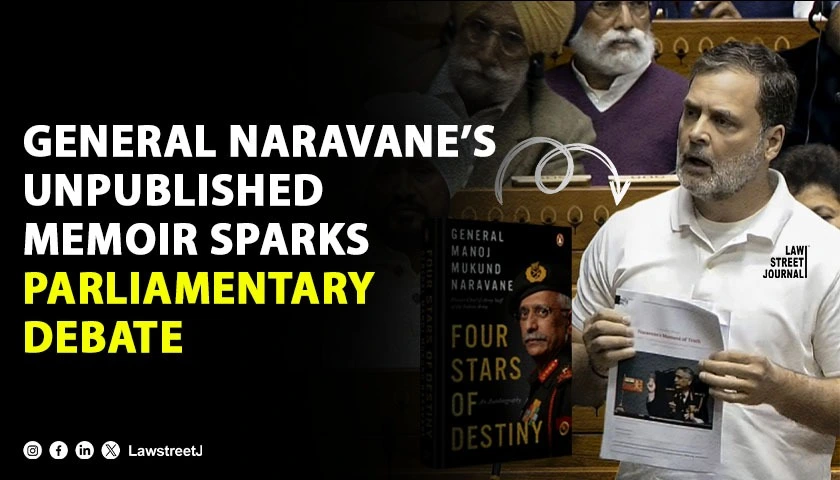Rajasthan: The Rajasthan High Court has delivered a significant judgment, holding that a compromise reached between the accused and the victim’s family in a case involving the rape of a minor girl has no legal validity and cannot be enforced.
Justice Rajendra Prakash Soni, while dismissing a bail application, emphasized that such compromises often stem from coercion or undue influence rather than a genuine settlement.
The court was hearing a bail petition filed under Section 439 of the Code of Criminal Procedure in connection with an FIR registered for offences under Sections 342, 376(2)(f) of the Indian Penal Code, Sections 5(m)/6 of the POCSO Act, and Sections 3(1)(w), 3(2)(v) of the SC/ST (Prevention of Atrocities) Act.
The case involved allegations that the accused had raped an 11-year-old girl. While the defense argued that a compromise had been reached with the victim’s family, the court rejected this contention.
The court observed, “Having given anxious consideration to the rival submissions and examined the record, I am clearly of the view that in a case involving the rape of a minor girl, the compromise arrived at by the accused with the victim girl and her parents has no legal value and cannot be given effect to.”
Addressing the rationale behind rejecting such compromises, the court stated, “The idea behind this is that the law recognizes minors as vulnerable and lacking the capacity to make fully informed decisions on their own. In cases of sexual violence against minors, the State steps in to act in the best interests of the child, recognizing that a minor may not fully understand the implications of a compromise and that the family may be influenced by financial incentives.”
The court further noted, “Such compromises often reflect coercion or undue influence rather than a genuine settlement. Otherwise, why would the guardians of a girl, who is a victim of such a heinous crime, agree to compromise with the accused?”
Emphasizing the state’s duty to prosecute such crimes rigorously, the court held, “The state has a duty to prosecute such crimes with full rigor, regardless of any private settlement or compromise. Allowing a compromise to affect legal proceedings would potentially encourage similar offenses.”
The court also highlighted that the POCSO Act prioritizes the protection of vulnerable individuals and the accountability of perpetrators over any private settlements.
In conclusion, while dismissing the bail application, the court directed the trial court to record the statements of the victim and her parents at the earliest opportunity.





![Supreme Court Collegium approves new Chief Justices for five key High Courts in India [Read Recommendations]](/secure/uploads/2023/12/lj_8000_380d1135-6f3a-4988-a00a-4d5cd5901815.jpg)
!["Consolidate bail pleas in identical FIR cases to ensure consistent judicial decisions": Supreme Court to High Courts [Read Order]](/secure/uploads/2023/12/lj_4845_8d23b142-dc06-4f22-955f-04342d1d5bd2.jpg)






